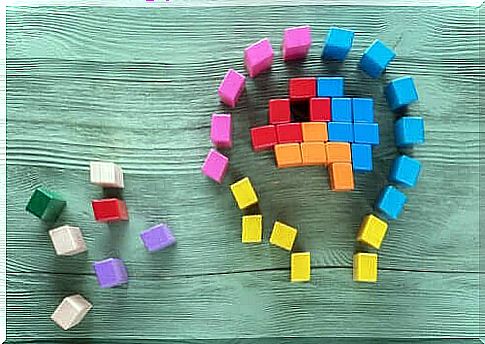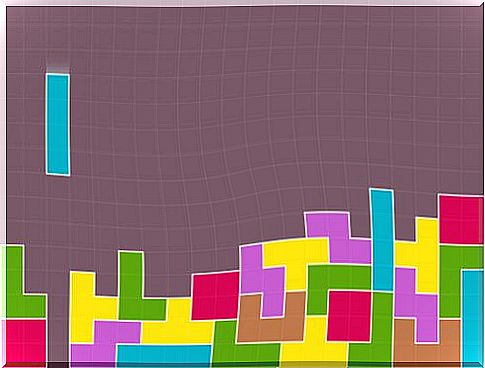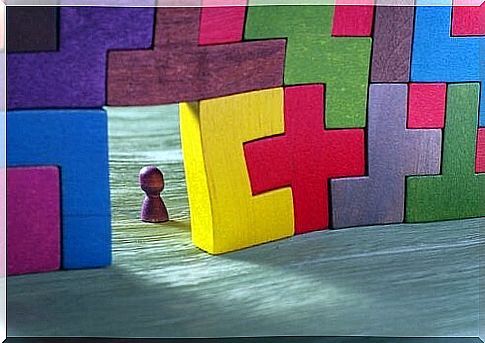The Tetris Effect: What Is It?

If you have never heard of the tetris effect, you should definitely read it here. It is a completely fascinating psychological effect that can teach you a lot about how the human brain works.
The thing we do every day has a power that can change the way we think. The more time you spend on something, the more it shapes the way you see the world. And there are cases where this impact is huge. An example of this is the tetris effect.
The tetris effect gets its name from the popular electronic game that consists of placing different pieces in a way so that there is no space between them. It is one of the most addictive games ever. Adults, children and people of all ages have spent hundreds of hours playing it. Some studies say it can even change the way you think.
Read on here to learn more about what exactly the tetris effect is. It is by no means dangerous, but it can tell us a lot about the way our brain works. By learning more about it, you will also be better able to understand why it is so powerful.
What exactly is the tetris effect?
Tetris is one of the most studied electronic games in psychology. The way it is designed has helped us learn more about certain types of memory that need to be processed along with attention and information. But one of the most fascinating things about this effect is about the way we see the world.
Several studies have shown that playing tetris for a long time can affect your thought processes, inner mental images and dreams. From what one could see, those who were most affected by it are also those who spent the most time playing it. They have begun to see the world through the lens of this electronic game.

Those who play a lot of tetris found that they thought a lot about how they could make the pieces of the world fit together. For example, they could spend time thinking about how the goods in the supermarket could be better placed on the shelves.
Or they visualized what it would look like if all the buildings hung together. Some even had hallucinations where they saw tetris pieces fall from the sky.
For other people , the tetris effect meant that they saw the blocks in their dreams or as sleep-inducing hallucinations. None of these symptoms gave them serious problems, but the researchers found it very fascinating that a simple game can have such a large effect on perception.
What’s wrong with that?
Some psychologists believe that it is only a matter of habits. Some people sit and spend a lot of time playing this game so their brain starts to perceive the world through the lens from that game. If so, it’s basically just a certain way of organizing your memory.
However, some studies using scans found that tetris had a direct effect on the composition of our brains. A 1994 study by Okagaki and French, for example, showed that by playing 12 times 30 minutes of play, one could see that the gray mass in the brain became denser.
That part of the brain is directly related to intelligence, cognitive flexibility and many other abilities. This led the researchers to conclude that playing tetris could improve a person’s mental skills. If you look at it that way, it can actually be a good and positive thing.

Other effects on the tetris effect
This change in the way we think and perceive the world does not just happen with tetris. Many other activities can have this effect on our brain.
For example, solving a professor’s dice as quickly as possible (Rubik’s dice) and using programming languages can influence your visual perception and the way you apply logic.
The same goes for math. Once you have learned advanced mathematics, it can change the way you perceive reality.
This effect can also affect other senses. The feeling that we know when we go ashore from a boat is also a bit the same as the tetris effect.
Although this area has not been fully explored yet, it has already changed our understanding of the true potential of our brain.








